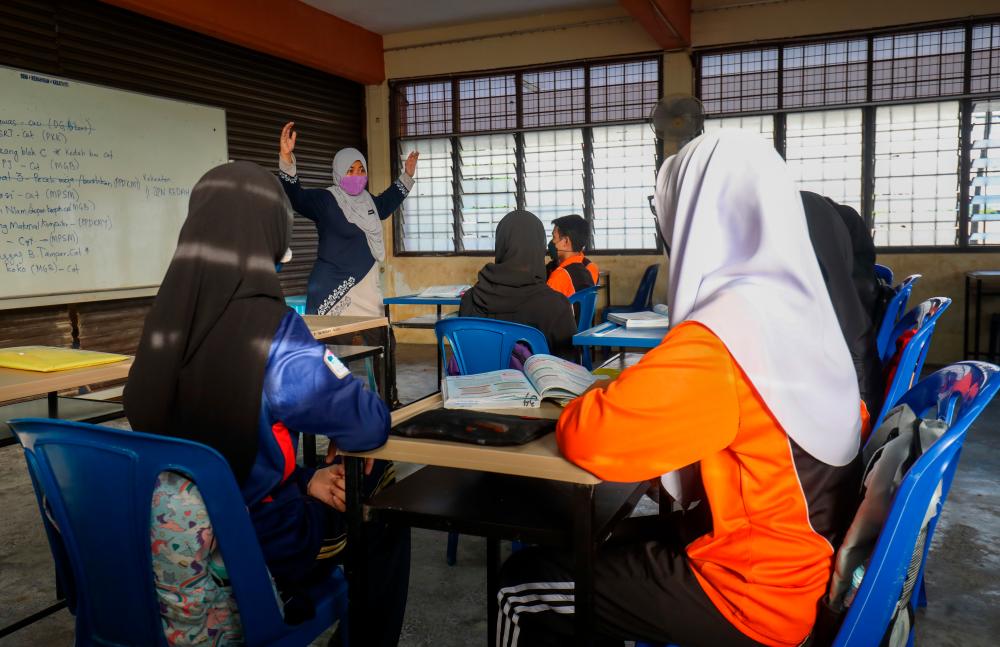PETALING JAYA: An NGO, the Society Deaf of Johor, has urged the government to open schools for deaf students in every state.
Its president Mohd Yazid Bain, who is based in Johor, said there are no schools for the deaf in the country.
“There was one school for the deaf in Penang called the Federation School for the Deaf, but it has since been converted into the Penang Federation Special Education Secondary School,” he said.
“This presents a serious problem for deaf students because they have to travel to Penang from their home states to sit for the SPM examination.”
Mohd Yazid said there are a total of 35 special education schools in the country – six special education secondary schools and 29 special education primary schools, while the Indahpura Vocational Special Education Secondary School has been established in Kulai, Johor
He said some 55,000 deaf people are registered under the Social Welfare Department, while the Johor district welfare department has recorded about 6,000 deaf people.
“The special education secondary school in Penang provides dormitories, and the teachers are proficient in sign language, allowing students to sit for the SPM examination without any communication issues.”
At a Temu Anwar Johor UTM event that was recently shared on social media, Ernie Yanti Mahmoud, who is deputy chairman of a special education school in Johor Bahru, said there are many deaf students in Johor Bahru with potential.
“As Penang has the only school that allows deaf students to sit for their SPM, parents in Johor Bahru have no choice but to send their children there.”
Other states have also called on the government to open more schools for the deaf.
In 2018, the Sabah Society for the Deaf appealed to the Education Ministry to establish Form 4 and 5 classes for deaf students in the state.
The society said there are only two schools in Sabah that provide formal education for deaf students, and efforts to establish classes for higher levels have been ongoing for over a decade, with no success.
Mohd Yazid reiterated his call for swift action to remedy the situation and address the dearth of special education secondary schools in all states.
“Deaf students in Johor can still attend the examination in regular secondary schools with integrated special education.
“These integrated schools aim to provide inclusive education for deaf students by incorporating teachers who are proficient in sign language in classrooms, and teaching materials are modified to suit the learning needs of students,” he said.
However, there are challenges faced by deaf students in integrated schools, such as shortage of teachers proficient in sign language.
Other challenges are the shortage of accommodation and institutions that are equipped with comprehensive special education facilities for the deaf.
In light of the challenges, Mohd Yazid said: “We need more teachers who are well-trained in providing special education.”
He stressed that sign language serves as the primary language for deaf individuals.
“I encourage the public and private sectors to promote sign language workshops and courses to enhance the deaf community’s inclusivity and ability to communication with normal people.”
A special education data book released by the Education Ministry last year said 3,173 deaf students required special education.
The figure included students from pre-school to secondary school.









